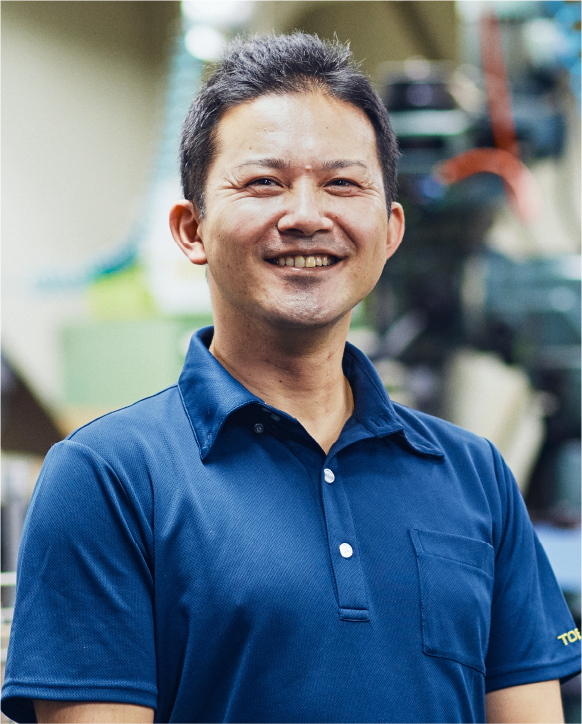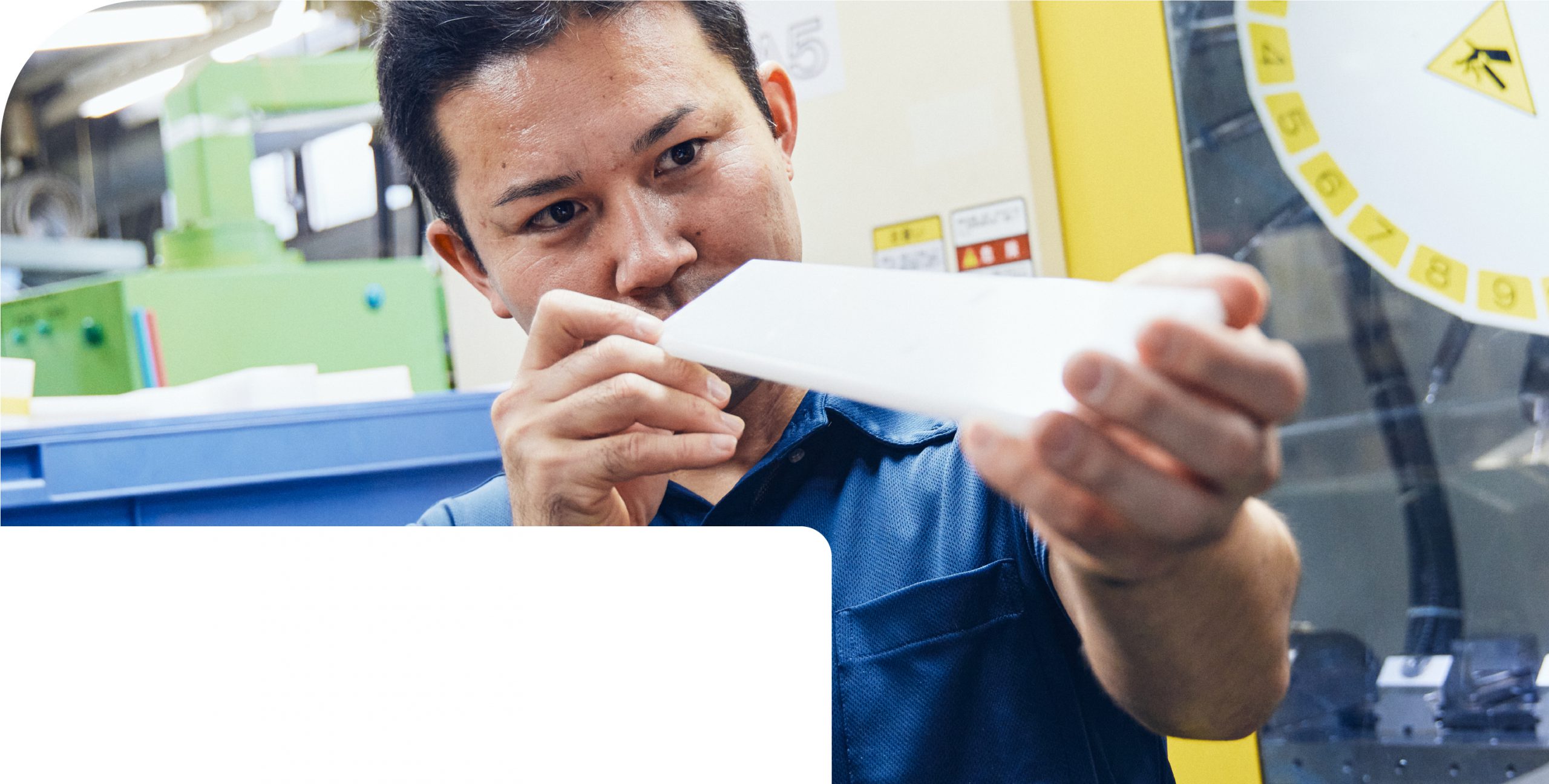Comments from manufacturing/management employees

-
Please tell me how you joined Tokyo Belt.
It all started when a colleague from my previous job who had joined Tokyo Belt as a sales representative told me that they were hiring in the manufacturing department.The top management in manufacturing was elderly, and they wanted to bring in younger people to pass on the skills.At the time, I was in my mid-twenties and had no experience in the manufacturing industry or manufacturing, but I decided to take the plunge.When I joined the company, I was surprised to find that he liked making things, and I learned new things without any difficulty.
-
Was it difficult until you became a full-fledged person?
I had no experience, so there was a lot to learn.At first, I did simple jobs such as cutting materials such as round bars and cutting boards, deburring (shaving off unnecessary splinters and jags that occur during processing) and packaging the processed products made by my senior colleagues. Little by little, I learned how to operate machines, how to use tools, and the characteristics and types of materials.You also have to be able to read the drawings well.It's not as exaggerated as training for a craftsman, but there are at least a few things you need to remember before starting machining.However, once you have learned how to operate the machine, you can produce simple items for customers fairly quickly.I remember making simple shaped products using a lathe about three months after joining the company.
Although it was my first time being involved in manufacturing, I was not particularly confused.However, at the time, there was a lot to remember and it was all I could do, and since I was dealing with a large machine with a knife, I was afraid that I might get hurt if I didn't operate it correctly, so I was always nervous until I got used to it. There were times when I felt mentally exhausted.

-
How did you learn how to work and what you know?
In response to requests from customers, I would routinely discuss trial and error with my colleagues and slightly more senior colleagues, such as ``How should I make this?''Ideas that come up during discussions are put into practice by operating the machine to see if they are correct.In other words, daily practice = study.Of course, we have experienced employees, but instead of relying on them for everything, we tried it out ourselves and asked for help when we really had a problem.
-
What is the process for learning machine operation in manufacturing jobs?
TJKC has a complete set of equipment including machining centers, NC turret lathes, and NC milling machines.
For those with no experience, the order of education is to first check the movement of a general-purpose milling cutter and general-purpose lathe.You can't make things unless you experience with your own hands the logic of how to apply the blade and how it cuts.Machines can also be dangerous if not used properly.In order to understand what is dangerous, we will first have you work with a general-purpose machine (manual processing machine).
The next step is machining.To master it, you need to understand the basic properties of resin and how the machine works, and then learn the program.Unlike metal processing, in resin processing, the operator also makes settings such as the number of rotations of the cutter, the rotational speed, and the amount of material to be removed.In order to process parts using a machining center and ship them, you need to understand the basics of resin processing, and there is a wide range of things to learn.It takes a long time to be called a skilled worker.
Our company introduced parts processing using machining centers in 2015, and it was also around the same time that we introduced CAD/CAM in earnest.This led to aggressive capital investment.In other words, it is only recently that we have introduced various new technologies.It is very difficult to learn and put into practice new skills without cooperation from others.To achieve this, we have adopted a relaxed division of labor.Ideally, each person should have one machine that they are good at, and be able to handle several other types of machines as well.
It is not a job that you can become a full-fledged person in a short period of time, but if you sit down and gain experience, you will definitely be able to take on TJKC as the next generation's main force in the future.You can also be a professional machining operator.
-
Are you closed on Saturdays, Sundays, and holidays?
Even after I became the person in charge of TJKC, I basically take Saturdays, Sundays, and holidays off (note: I work on Saturdays five times a year).The only time I went to work was during equipment installation work.No matter how busy I am, I will always keep that in mind.
Basically, we do not anticipate working on holidays unless there are significant irregularities.The fact that the factory does not operate on holidays may be an advantage that differs from other manufacturing industries. -
What do you find rewarding?
It's really fun when you can make something exactly as you envisioned, or when it comes out beautifully.Also, when I find out that something I made is actually being used in a place close to me, I feel glad that I made it, and I feel like I've been rewarded.Or, as someone involved in manufacturing, it makes me extremely happy when we successfully complete a project that was rejected by another processor and brought to our company, and the customer is happy.
Since the start of the T-REX (reverse engineering of mechanical parts) service, I have been spending more time creating drawings and programs using 3D scanners and CAD/CAM.Opportunities to actually make things by operating machines have decreased significantly, but the joy of manufacturing, which can be done even while sitting, has not been lost at all.
Employees' voices
Application details
Consultation regarding recruitment
Click here for inquiry
To Inquiry Form
*Please select "About Recruitment" for your inquiry.

